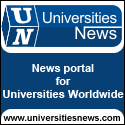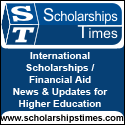Randy Schekman, a member of the Geisel School of Medicine Board of Overseers, was selected this week as a recipient of the Nobel Prize in Physiology or Medicine for 2013.
In addition to serving on the Geisel Board, Schekman is a professor of cell and developmental biology in the Department of Molecular and Cell Biology at the University of California, Berkeley, and an investigator of the Howard Hughes Medical Institute. Along with Schekman, James Rothman and Thomas Südhof were also named as Nobel recipients for their discoveries of machinery regulating vesicle traffic, a major transport system in our cells. Their pioneering work brought to light a fundamental process in cell physiology.
Schekman joined the Geisel Board of Overseers in March 2013 and is a professional colleague of Geisel faculty members Bill Wickner, Chilcott Professor in Biochemistry; and Charlie Barlowe, chair and professor of biochemistry. Barlowe trained in Schekman’s lab at UC Berkeley from 1990-1994.
“This is happy news for Randy and the cell biology community,” said Barlowe. “I think Randy is very deserving of a Nobel Prize in recognition of his creative science and his life’s work. Bill Wickner at Geisel is Randy’s longstanding friend and colleague, and we both think the world of him.”
According to an article from UC Berkeley, discoveries by Schekman about how yeast secrete proteins led directly to the success of the biotechnology industry, which was able to coax yeast to release useful protein drugs such as insulin and human growth hormone. These discoveries have helped diabetics worldwide to be able to use insulin produced and discharged by yeast, and helped create the hepatitis B vaccine that is being used around the world. Diseases such as diabetes and a form of hemophilia involve a problem in the secretion system of cells, and Schekman is using this knowledge to investigate a possible link to Alzheimer’s disease.
*************************************************
Geisel School of Medicine Board Member Wins Nobel Prize,





